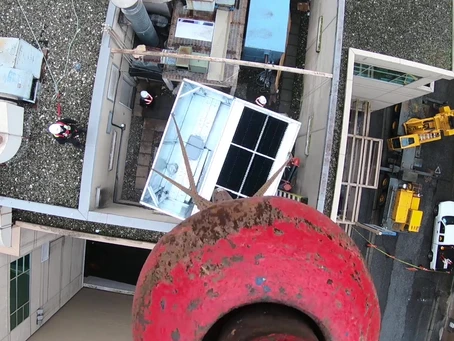As the leader in the Heating, Ventilation and Air Conditioning (HVAC) industry, we alert our customers when important events take place or when guidelines evolve where our disciplines are affected.
Cooling Towers have been on the news frequently in the past year or so in regards to health related issues. As a result it is of no surprise to CustomAir that various levels of governments are now involved and are mandating changes.
On Dec 5, 2018, Vancouver City Council unanimously approved a report outlining a new direction regarding cooling tower and water features registration, along with other building water systems.
As stated in the City of Vancouver policy report, Page 3:
“Legionella is the most frequently reported cause of water-associated outbreaks in the United States. Legionnaires’ disease is not acquired from drinking water, but rather by exposure to mist, which must be inhaled into the lungs. Buildings with mechanical systems which aerosolize water — including decorative fountains and cooling towers — have the potential for wide dispersal of Legionella-containing water mist.
Cooling towers are part of a building’s central cooling system. They are typically located on rooftops, and by design evaporate water to regulate temperature. They are implicated or suspected in 60% of Legionella outbreak-associated fatalities. Examples include Quebec City in 2012 (181 cases, 14 fatalities) and New York City in 2015 (133 cases, 16 fatalities).
In each of these examples, and also in the recent Surrey outbreak, authorities expended valuable resources to search for cooling towers in the affected areas in the midst of their respective outbreaks. This delayed identification of the source. Quebec and New York have since instituted mandatory cooling tower registries. Vancouver has no such registry, and staff from the City, Vancouver Coastal Health and the BC Centre for Disease Control do not know where the estimated 700 cooling towers are located. This report proposes to enhance public safety by creating mandatory operating permits for cooling towers, decorative water features, alternate water systems and building water treatment systems.”
And from Page 8:
“In Vancouver, this first proposed step of mandatory operating permits for new and existing cooling towers will provide local health authorities and City officials with a geographic registry of cooling towers, up-to-date owner contact information and a comprehensive database of existing practices.”
The registry of cooling towers is scheduled to begin Jan 1, 2020.
We expect the future will hold an ever-increasing focus on Legionella risk management in all building water systems. This direction is being supported by BOMA, UDI (Urban Development Institute), the BC Centre for Disease Control and the local Health Authorities.
We recommend a practical approach to the ongoing maintenance of cooling towers which will need to include documented water treatment.
CustomAir will be pleased to help support you to ensure your systems are working and maintained properly, action plans are created and followed and that risks associated with or leading to Legionella are eliminated.


